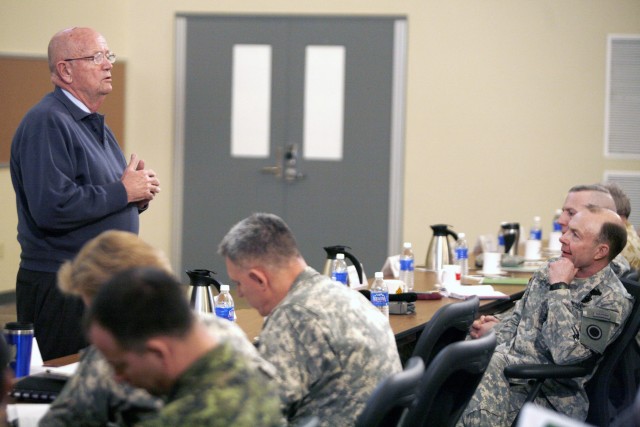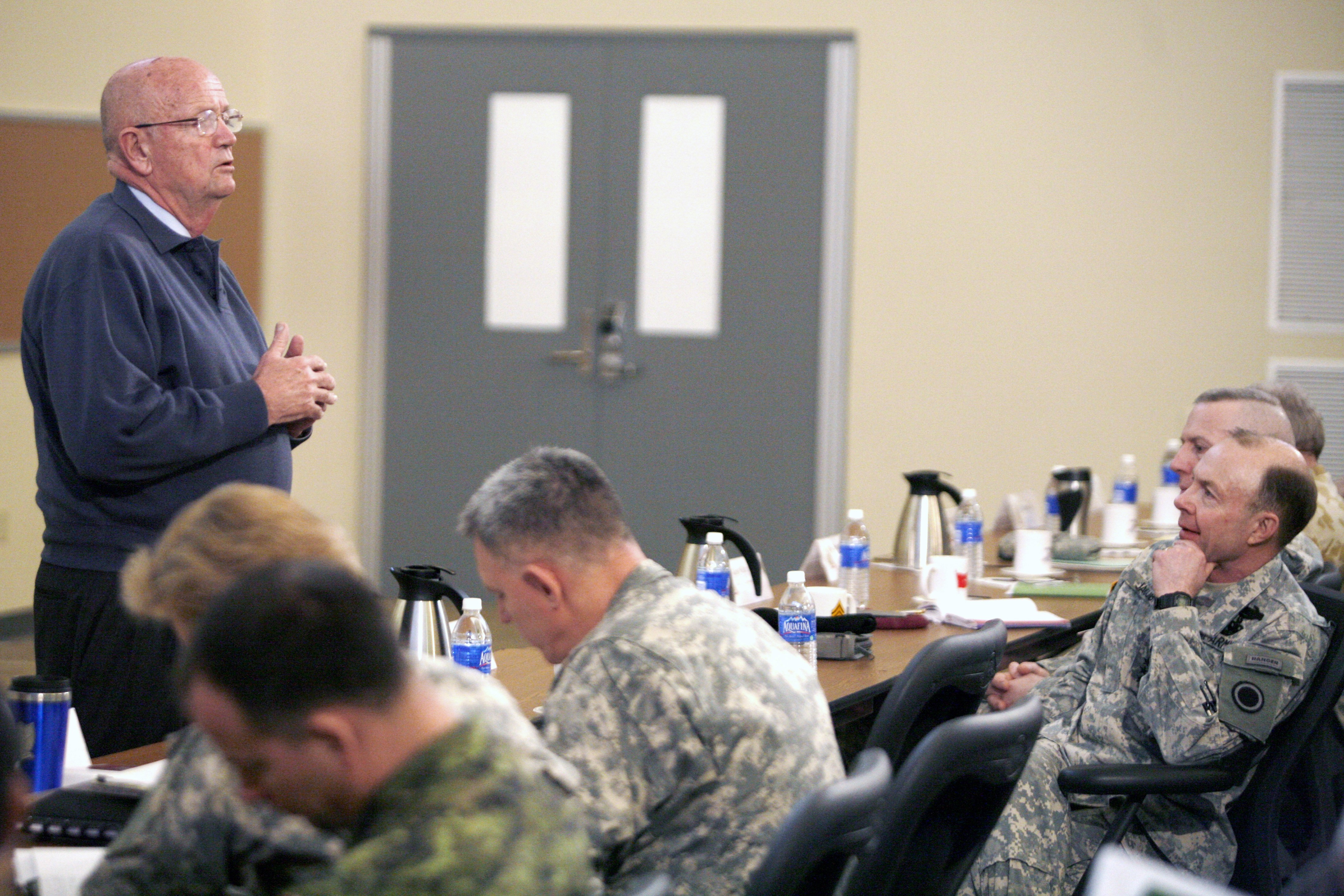FORT LEWIS, Wash. - Most advice is worth what you pay for it, according to conventional wisdom. But when it comes from a former Army chief of staff, its value, at least to Fort Lewis senior leaders, rises substantially.
Gordon R. Sullivan, retired general and president of the Association of the U.S. Army, visited Fort Lewis last week.
He said his AUSA job was to "travel around and tell the Army story," which required a prodigious travel schedule of the 71-year-old retiree.
I Corps commanding general, Lt. Gen. Charles H. Jacoby Jr., said Sullivan "truly inspired a generation of Soldiers."
Former Coalition Forces Land Component Command deputy commander, Maj. Gen. James A. Kelley, recently called him "a genuine American hero and a role model to every Soldier."
The former chief took time Feb. 4 from tours, office calls and AUSA functions, to offer observations drawn from a distinguished 36-year career to corps sergeants major, field-grade and general officers.
In off-the-cuff remarks, he ranged through the size, flexibility and priorities of the force. Afterward, he fielded questions about schools, tour lengths and working with foreign militaries. From his perspective, Sullivan wove all the subjects into one macro-view of today's Army and its needs for the future.
"The Army is too small ... under-resourced in money and manpower and ... crippled," he said, "(but) not broken."
Though during his tour as chief from 1991 to 1995 he presided over draw-down of the Army to below 500,000, he said he believed strongly the active Army today should be 700,000 Soldiers.
A part of the manpower deficit, he said, is a punishing rotation schedule, something the Army hierarchy is working hard to set at "two years down to one year in.
"Certainly, no one wants to see brigade combat teams, 12 months and a day after they leave, go back to Baghdad," Sullivan said.
Among the negative results from a stressed force is the challenge personnel managers have to schedule training for junior leaders and essential schools for senior ones, Sullivan said in an exclusive interview after his address.
"The essence of the Army has always been its high-quality men and women," he said. "Education is a very important aspect of professional development. Unfortunately, the pace with which we're forced to resource the war limits the amount of time people can spend in school."
The school house, Sullivan said, has increased in importance as conflicts evolve. Emphasis needs to continue and grow on foreign cultures and languages. No longer do we hear the emphasis on "nation-building." Instead, Soldiers and especially leaders need to learn an array of skills, something that evolved in the early '90s during his tenure as chief.
"It was readily apparent to many of us that the world had changed in very profound ways after the first Gulf War," Sullivan said. "Some of the changes became readily apparent in the Balkans, in Haiti, Somalia, Rwanda, which is where we began to see the Army and Marines ... used in roles we had not seen for years. We began writing about it in our doctrine and you can go back to some of the work we were doing then in ... training Soldiers to get into those types of activities.
"I'm not arguing that we shouldn't be doing what we're doing," he said. "I'm arguing that we need a larger force so that when we do go operational in the field, we are better prepared as we are serving around the world." The mission in Iraq is evolving, the former chief said, from that of I Corps' predecessor, XVIII Airborne Corps as Multi-National Corps-Iraq. He suggested that I Corps could find itself "the transition force" in Iraq.
With America's Corps headquarters in command, Sullivan said he has a lot of confidence in Iraq's course in the coming months.
"What I see is pretty impressive," he said. "I've had some very impressive briefings here. I think they're well prepared. Certainly, the subordinate units are very experienced - the 1st Cavalry Division, the 25th Infantry Division. These troops are very competent. They've been there. It's a very experienced force."
Sullivan said he estimated this to be at least his 10th trip to Fort Lewis, beginning when he served as assistant commandant of the U.S. Army Armor School from 1983 to 1985.
Don Kramer is a reporter with Fort Lewis' Northwest Guardian.


Social Sharing